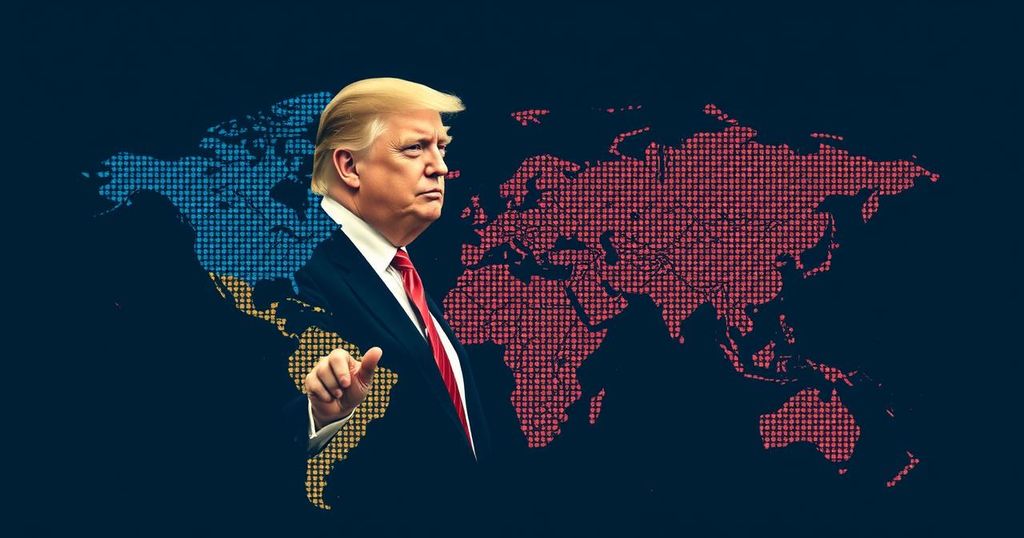Donald Trump’s re-election may mark a significant shift away from US-led globalization, prompting the need for a new model of engagement that reflects emerging global dynamics. The G20’s diminishing relevance and the rise of alternative groups like Brics highlight the changing landscape of international relations. China’s initiatives, particularly the Belt and Road, further symbolize the push for a more inclusive global economic order.
The recent re-election of Donald Trump could potentially signal a transformative shift away from US-led globalization, raising questions about the efficacy of multilateral institutions like the G20. As the international community confronts critical global challenges, there is an urgent need to maintain a commitment to open engagement, thereby facilitating a new era of globalization independent of American leadership. This emerging globalization 2.0 seeks to create an inclusive and equitable global economic framework, reflecting a departure from traditional Western dominance.
The significance of the recent G20 summit in Rio de Janeiro was overshadowed by Trump’s victory, particularly given his known aversion to multilateralism. The G20 has faced criticism for not adequately addressing the changing dynamics of global governance, leading to the rise of alternative platforms such as the Brics consortium. The Brics summit held in Kazan demonstrated this shift, as the bloc affirmed its pledge to enhance global connectivity and support the aspirations of the Global South.
President Xi Jinping’s participation in the quarter’s Asia-Pacific Economic Cooperation summit and the inauguration of Chancay Port further highlight China’s determination to strengthen its influence through initiatives like the Belt and Road Initiative. Such developments symbolize a robust commitment to economic integration across various regions, emphasizing South-South cooperation and shared prosperity in the changing international landscape.
Conversely, some Western observers perceive projects like Chancay Port as potential security threats, signaling growing unease regarding China’s expanding global influence. The increasing prominence of the Brics alliance and China’s ambitious economic projects pose significant challenges to the traditional Western-led order, necessitating an evaluation of the future of global governance without American hegemony.
The discussion surrounding Donald Trump’s re-election is pivotal in understanding the potential shift in global diplomatic dynamics. Under Trump’s leadership, the US has portrayed a retreat from multilateral engagement, which could lead to the deterioration of institutions such as the G20. As emerging powers assert their influence, particularly through groups like Brics, the concept of globalization may evolve into a more decentralized approach that prioritizes the interests of developing nations. The Brics nations, having expanded their membership, are increasingly vocal about creating a new economic order that emphasizes equity and inclusivity. This context is essential to grasp the implications of Trump’s leadership on future international relations.
In summary, Trump’s re-election poses challenges to established global governance frameworks, undermining the US-led order that has dominated for decades. The emergence of alternative coalitions like Brics and initiatives such as China’s Belt and Road signify a shift towards globalization 2.0, characterized by South-South cooperation and a focus on inclusive economic development. As the international community grapples with critical issues, it becomes imperative to reconsider the role of the United States and explore paths that foster collaborative efforts in addressing global challenges without reliant on traditional Western models.
Original Source: www.scmp.com






